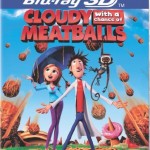Weekly News Roundup (13 June 2010)
What started as a pretty quiet week in terms of news turned a bit more busy in the last few days. E3, the US Copyright Group, Adobe, Sony all made the news later on in the week, whether it was new rumours, or new downloads, it’s all covered by this week’s Weekly News Roundup. Are you enjoying the World Cup? I’m not a big fan of the Vuvuzelas though, nor drums, bells, whistles, or anything else that makes artificial stadium noise. Cheering, singing, chanting, swearing, and the occasional round of claps, is what it’s all about. Hearing the crowd’s anticipation, nervousness, exhilaration, depression, makes the game a much better spectacle, and I think the players appreciates the interaction with the crowd as well. Vuvuzelas and other artificial noise drowns out all of these, and I think it takes something away from the beautiful game. But it also does drown out the Samsung plasma buzz, so silver lining and all.
Speaking of Samsung plasma TVs, I still haven’t gotten mine yet, so no watching the World Cup in 3D 🙁

Starting with copyright news, the Canadian DMCA is still under consultation, but the IFPI, the RIAA’s International wing, has come out attacking the proposed changes as not going “far enough”. You know what, if the RIAA and their axis of evil friends don’t like it, then perhaps there’s something to like about the DMCA.
I think the RIAA’s biggest problem with the bill is that it finally makes CD ripping legal, and format shifting as well (so CD to MP3 => legal). But there’s nothing they can do about that now, since CDs don’t have DRM, a decision the RIAA may forever regret (not that having DRM actually stops piracy or anything, but at least it makes ripping them illegal in the eyes of the law, with the caveat that prosecuting someone for ripping their own CD/DVDs for personal use is likely to end up a futile endeavour).
But it again just highlights the stupidity of making the breaking of DRM illegal (exemptions apart), regardless of the intentions behind the attempted break. If CDs don’t have DRM, does it then make it legal to pirate CDs? Of course not. The music labels still have the same level of legal protection as movie studios when it comes to DVDs that do have DRM. And is DVD DRM preventing DVD ripping or piracy? Of course not. And with DVD (and even Blu-ray) DRM so easy to break, it’s about as useful in stopping piracy as making users read those unskippable copyright notices at the start of the disc. Of course, in the area of placing limits on what users can do with their own stuff, then it’s a huge success. While the some studios and anti-piracy agencies claim they would never sue anyone for breaking DRM for personal purposes, the fact is that if they wanted to, they can. It’s having this level of power and control that made the studios fall in love with DRM in the first place, not its value (or lack of it) in fighting piracy.
And just how far can this power grab by studios go? Well, if you live in the Netherlands, then it can go very far indeed. A Dutch court has just ruled that even talking about piracy may be a crime. The case relates to an Usenet community, in which the user “spots” potential downloads. Not by linking or anything, by simply talking about the general location of where downloads are located. Apparently, this is just as bad as linking, which is just as bad as hosting, in the court’s eyes. What’s next? Guilty of copyright infringement for even thinking about illegal downloads? Thought-crime anyone? I think this is another instance of legal authorities not really understanding the way the Internet works. The Internet was designed by the US military as a way for communications to still work even after a massive nuclear attack, and this works by building a “web” of connections, allowing every server to potentially route to every other. And not only is the underlying connection all connected, web pages containing links can also link to potentially every other website in the world, depending on how many links you want to hop to. And then there are search engines like Google, which aims to be able to link to every resource on the Internet. So what does all of this mean? It means that if direct hosting, direct linking, indirect linking and now even indirect discussions are all illegal, then by the way the Internet works, every site can potentially link to the illegal download in question, every router can potentially carry the illegal download to the end user, every search engine can potentially allow users to find the illegal download in question, and so every website on the Internet is illegal. I now finally understand why the CEO of Sony Pictures said that nothing good has come out of the Internet being invented.
The RIAA wants the assets of LimWire and its creator to be frozen, because they want to seek billions in terms of damages. Billions! I think I’ve said this before, but I would really love for the RIAA to prove just how they derive their claimed losses due to piracy, and the only way may very well be for all pirated content providers around the world to stop for a month, just a month, and see how much more money the RIAA makes during this time (if any). Then time this by 12, and then the RIAA will have their annual “loss” figure. Would I be surprised if this figure turns out to be negative, in that the RIAA may make *less* money as people stop listening to their music (illegally, for free) for a month and they lose the free publicity the Internet provides musicians? Not really.
The rest of the week was dominated by louder and louder condemnations of the way the US Copyright Group is going about its anti-piracy “pre-trial settlement” business. The EFF and ACLU are stepping in and they want a judge in charge of ruling on one of the USCG’s mass subpoenas to dismiss all but one of the subpoenas. They say that the USCG must present evidence that all of the John Does as part of the subpoena have been joined in the same lawsuit for a reason, that they were all part of the same transaction or have some kind of common connection. You see, some groups uses this kind of “subpoena spam” to greatly simplify things for themselves, and may only be using these subpoenas as a way to threaten people to pay up, with no real intentions of going to court. But the ACLU and EFF may very well want a full trial, and if they can get the right decision, then the USCG may have to stop their very lucrative business. If the ACLU/EFF can get in touch with many of those that claim they’re innocent of the acts that the USCG has charged them with, then perhaps winning a trial won’t be too difficult. These kind of mass mailings always catches a few innocents, those that have had their connection hacked, or IP spoofed, but most will pay up to avoid the trouble of going to court, especially when threatened with the possibility of $150,000 in damages that the USCG may seek. And the USCG is targeting more and more movies, with sources claiming that they are watching 300 illegally download films, and if they only record 500 IP addresses for each movie, then that’s 150,000 potential “pre-trial settlement” payments, and even if just 50% of those pay up the minimum amount required by the USCG, then we’re already taking about more than a hundred million dollars in terms of income.
This makes me think that something will be done about the USCG’s actions, but it will be something that’s even worse I think, as the government can use the actions of the USCG to justify things like three-strikes, which they will promise that any new laws will come with safeguards to prevent companies that seek to profit too much from anti-piracy activities without at least giving users some warning first. Three-strikes is better than one strike, after all. If I was the head of the MPAA, I would use groups like the USCG to do all sorts of nasty things and then use this mythical bogeyman as a way to scare people into thinking that something only slightly better, but still very bad (like three-strikes), is the right, better solution. It’s better, but it’s not good (take note Larry David), and it may eventually become worse.

Onto HD/3D news. I know in my 3D Blu-ray – What’s it all about? blog post I mentioned the lack of 3D Blu-ray titles for general sale, but it seems I spoke too soon, because Sony are readying their first general release 3D Blu-ray movie to be made available June 22nd. The title is Cloudy With a Chance of Meatballs, and it will be followed shortly by others titles.
This is good news, and more “real 3D” content means it will be easier to benchmark the various 3D TVs so we can find out for sure which current technology, LED/LCD or plasma, is better for 3D, and which particular models are best at it. There’s a big question mark around using Samsung’s exclusive Monster vs Aliens, since some of the ghosting artifacts found when watching the movie may in fact be a problem with the movie encoding, as opposed to Samsung’s 3D technology. But it’s a bit pricey though, at $36 on Amazon, that’s twice as expensive as most other Blu-ray movies. Ouch.
3D notebooks will be everywhere, with Toshiba joining Acer and Asus, amongst others, to release a new 3D enabled notebook. This seems a bit gimmicky for me, even on top of the “gimmickiness” of 3D. 3D requires a big screen and controlled lighting environment for the best enjoyment, and I’m just not sure notebook screens can offer this. Plus, 3D gaming requires a lot of GPU power, and this is something that notebook cannot do, compared to desktops and consoles. But if these machines can be connected to 3D TVs and used as 3D Blu-ray players, then perhaps that’s where they may be useful.
Adobe has finally release version 10.1 of their Flash player. Despite the minor version number change, this one includes a lot of changes, and it took long enough to get from beta to gold as well. The most important new features is GPU assist support, which may make HD YouTube finally playable on certain netbooks and CULV laptops. My first impressions were that CPU usage was down, but playing a 1080p YouTube clip was still more processor intensive than playing a Blu-ray movie via PowerDVD, so hopefully more improvements can be made in this area (but the nature of the Flash plugin will always mean more overhead I suppose).
Blu-ray firmware updates are far too frequent it seems for the average user, many of whom don’t even know what a firmware is. This is one stumbling block for Blu-ray on its path towards mainstream acceptance. DVD players didn’t have this problem, and there’s always an inherent danger in firmware updates, since if the power goes out during the middle of an update, then the player could be fried unless it was well designed to prevent this sort of thing from happening (like some kind of firmware reset function).
![]()
And finally in gaming, with E3 just around the corner, there’s plenty of rumours about what each of the major companies will be promoting during the show. I’ve collected some of the popular rumours in this post, with ratings on how likely each rumour will turn into fact.
We know Sony will be promoting Move, Microsoft will be promoting Project Natal (or whatever they’re calling it by this time tomorrow), but will the 3DS be the only thing Nintendo has to show? Nothing for the Wii? Nothing like a Wii 2 or Wii HD to steal Move/Natal’s thunder? I find it all hard to believe. Watch this space.
Speaking of the 3DS, some developers that have had a chance to play with the hardware say that it is as powerful as the Xbox 360 and PS3. Now I find this even harder to believe. Can the 3DS give Xbox 360, PS3 like graphics on the lower resolution screen, perhaps, since what will look good at 720p on a big TV, will look similar at much lower resolution on the smaller screen. So perhaps this is what was meant. But graphics has never been what the DS (or any of Nintendo’s other consoles) are about. And 3D without glasses could be fun.
For 3D with glasses, the PS3 now has some 3D games for you to try out, no firmware update required since the required update had already occurred in April, so all you need to do is to update the supported games themselves (if you’ve already purchased them). Some people who have tried it say it’s fantastic, of course I can’t test it for myself because my 3D TV hasn’t arrived yet 🙁
And so we come to the end of yet another Weekly News Roundup. E3, and perhaps another round of NPD figures (for May), will ensure the next issue of the WNR will be fairly gaming dominated, for a change. Have a good one.



